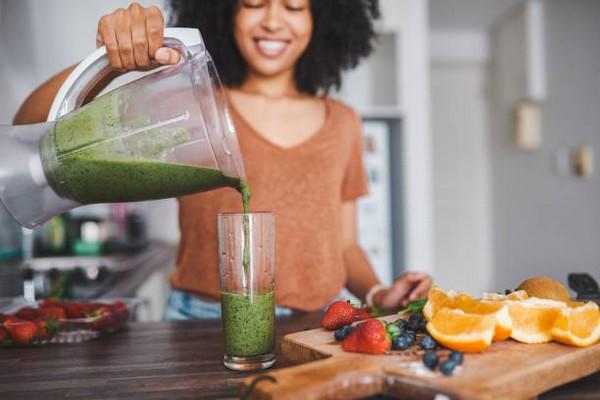Liquid calories refer to the calories found in drinks, as opposed to solid food. These calories can come from a variety of beverages, including sugary sodas, alcohol, fruit juices, and even some seemingly healthy drinks like smoothies and protein shakes. Understanding the impact of liquid calories is crucial for anyone looking to maintain a healthy diet and achieve their fitness and weight loss goals.
What Are Liquid Calories?
Liquid calories are calories that come from beverages. Unlike solid food, which requires chewing and digestion, liquid calories can be consumed quickly and often in large quantities. This can lead to consuming more calories than intended, which can hinder weight loss efforts.
Common Sources of Liquid Calories
- Sugary drinks: Sodas, energy drinks, and sweetened teas
- Alcohol: Beer, wine, cocktails, and spirits
- Fruit juices: Even 100% fruit juice contains a high amount of sugar
- Milk and milk alternatives: Whole milk, flavored milk, and sweetened plant-based milk
- Smoothies and shakes: Especially those with added sugars or syrups
- Coffee and tea: When consumed with added sugar, cream, or flavored syrups
How Liquid Calories Affect Your Body
Quick Absorption
Liquid calories are absorbed faster than calories from solid food. This can cause a rapid spike in blood sugar levels, leading to a subsequent crash that can leave you feeling hungry sooner.
Reduced Satiety
Beverages typically do not provide the same feeling of fullness as solid foods. This means you might end up consuming additional calories because your brain does not register that you’ve consumed enough energy.
Hidden Calories
It’s easy to overlook the calories in beverages, especially those that seem healthy, like fruit juices or smoothies. These hidden calories can add up quickly and sabotage your weight loss efforts.
Impact on Weight Loss
Caloric Surplus
Consuming more calories than your body needs leads to a caloric surplus, which results in weight gain. Liquid calories can contribute significantly to this surplus without you even realizing it.
Reduced Nutrient Intake
When you consume high-calorie beverages, you might be less likely to eat nutrient-dense foods. This can lead to nutrient deficiencies, impacting your overall health and fitness.
Interference with Metabolic Processes
Sugary drinks can interfere with your body’s metabolic processes, leading to insulin resistance and an increased risk of developing type 2 diabetes.
Tips for Reducing Liquid Calorie Intake
Opt for Water
Water is the best choice for staying hydrated without adding extra calories. Aim to drink at least 8 cups of water a day, more if you’re active.
Choose Unsweetened Beverages
When opting for tea or coffee, choose unsweetened versions. If you prefer milk or milk alternatives, go for unsweetened options.
Read Labels
Be mindful of the nutritional labels on beverages. Check for added sugars and calorie content, and make informed choices.
Make Your Own Drinks
By making your own beverages, such as smoothies or flavored water, you can control the ingredients and avoid added sugars.
Limit Alcohol
If you consume alcohol, do so in moderation. Be aware of the calorie content in different alcoholic beverages and opt for lower-calorie options when possible.
Integrating Healthy Beverages into Your Diet
Infused Water
Add a splash of flavor to your water by infusing it with fruits, herbs, or vegetables. This can make drinking water more enjoyable without adding extra calories.
Herbal Teas
Herbal teas are a great way to stay hydrated and enjoy different flavors without added sugars or calories.
Green Tea
Green tea is known for its potential to boost metabolism and aid in weight loss. It also contains antioxidants that can benefit your overall health.
Black Coffee
Black coffee can be a good option for a calorie-free energy boost. Avoid adding sugar, cream, or flavored syrups to keep it healthy.
See Also: What Is Protein Good For When Working Out
Creating a Balanced Fitness and Diet Plan
Monitor Your Caloric Intake
Keep track of your daily caloric intake, including calories from beverages. Use a food diary or a mobile app to stay accountable.
Focus on Nutrient-Dense Foods
Prioritize whole, nutrient-dense foods like fruits, vegetables, lean proteins, and whole grains. These foods will help keep you full and provide essential nutrients.
Stay Active
Combine your healthy diet with regular physical activity. Aim for at least 150 minutes of moderate-intensity exercise per week, such as brisk walking or cycling.
Set Realistic Goals
Set achievable fitness and weight loss goals. Break them down into smaller, manageable steps to stay motivated and track your progress.
Seek Professional Advice
If you’re struggling with your diet or fitness plan, consider seeking advice from a registered dietitian or a fitness professional. They can provide personalized guidance and support.
FAQs About Liquid Calories
Are all liquid calories bad?
Not all liquid calories are bad, but it’s important to be mindful of their source. Beverages like smoothies or protein shakes can be healthy if made with nutritious ingredients and consumed in moderation.
How can I tell if a drink has too many liquid calories?
Check the nutritional label for the calorie content and added sugars. Beverages with high amounts of added sugars or calories should be consumed sparingly.
Can I drink fruit juice on a diet?
While fruit juice contains vitamins and minerals, it is also high in sugar. It’s better to eat whole fruits for their fiber content and limit fruit juice intake.
How does alcohol affect weight loss?
Alcohol contains empty calories and can lower inhibitions, leading to overeating. It’s best to consume alcohol in moderation if you’re trying to lose weight.
What are some low-calorie beverage options?
Water, herbal teas, black coffee, and infused water are excellent low-calorie beverage options.
Conclusion
Understanding and managing liquid calories is crucial for achieving your fitness and weight loss goals. By making informed choices about what you drink and prioritizing nutrient-dense foods, you can create a balanced diet that supports your health and fitness journey. Stay hydrated, stay active, and stay mindful of the calories you consume in liquid form.


